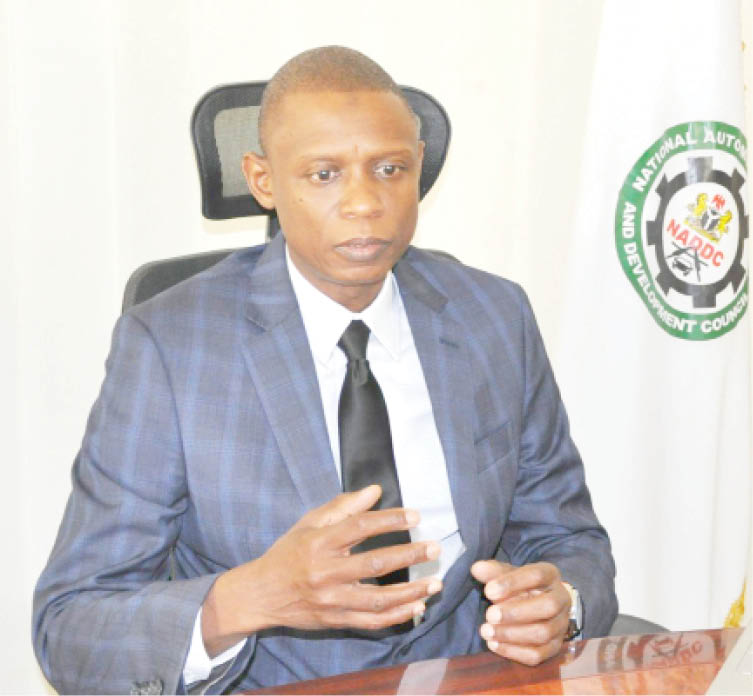52 vehicle assembly plants shut down
There are growing concerns in the automotive industry as most of the assembly plants approved by the federal government have shut down leaving just a handful of them operating, it has been observed. Daily Trust findings revealed that no fewer than 58 Assembly plants were approved by the federal government through the National Automotive Design […]

Director General of NADDC, Jelani Aliyu
There are growing concerns in the automotive industry as most of the assembly plants approved by the federal government have shut down leaving just a handful of them operating, it has been observed.
Daily Trust findings revealed that no fewer than 58 Assembly plants were approved by the federal government through the National Automotive Design and Development Council (NADDC) as at 2015 to assemble semi knocked down (SKD) vehicles to be deployed on Nigerian roads.
- NITEL/Mtel pensioners laud finance minister, PTAD on arrears payment
- Gombe confirms 3 cases of monkeypox
At the moment, however, only about six of the assembly plants are active as disclosed by an industry stakeholder and the Deputy Managing Director of CFAO Motors, Mr Kunle Jaiyesinmi.
Jaiyesinmi spoke in Lagos at the 7th edition of the Nigeria Auto Journalists Association (NAJA) training/capacity building workshop with the theme: “Accelerating Automobile Industry Recovery Strategy In Post COVID-19 Era”.
Jaiyesinmi who is also the chairman of the Auto & Allied sub-Sectoral group of the Lagos Chamber of Commerce & Industry (LCCI) stated that the decision of President Muhammadu Buhari to decline assent to the National Automotive Industry Development Plan (NAIDP Bill) passed under President Goodluck Jonathan was a setback to the industry.
Daily Trust reports that various auto assemblers have invested over $1bn into the assembly plants according to the NADDC.
However, many of the assembly plants have been shut down, according to the CFAO boss.
To keep the employees, he disclosed that CFAO had since converted their workers in assembly plants to after-sales staff.
He said, “When the National Automotive Design and Development Council (NADDC) came up with the policy, we had it in phases; that is starting with semi knocked down, SKD1 SKD2 and SKD3. It was expected that after 5 years, we would have migrated to CKD (Complete Knocked Down). By 2014, we should have been in CKD but we are still in SKD in 2022.
“We are still in SKD because there is no way we can talk of CKD without the steel industry working and other auxiliary products which have shut down.
Other challenges he highlighted include the non-availability of foreign exchange to bring in machinery from the suppliers, frequent upgrade of imported vehicle values by the Nigerian Customs Service (NCS), delay in clearing containers at various ports in Nigeria, among others.
“It is now more profitable to bring in Fully Built Units (FBUs) than assembling, and this is why less than six assembly plants are now in operation,” he said.
